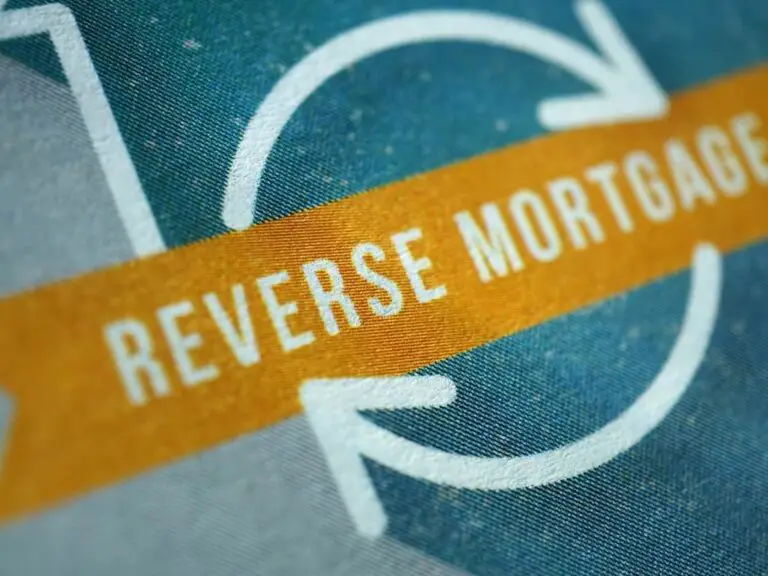Is It Better to Retire in Las Vegas or Phoenix?
The main difference between retiring in Las Vegas and Phoenix is that retiring in Las Vegas offers more entertainment options such as numerous casinos, shows, and nightlife. In contrast, Phoenix offers a more laid-back lifestyle with a focus on outdoor activities like hiking and golfing. Phoenix also tends to be hotter in the summers but more temperate in the winters as compared to Las Vegas.
The cost of living can vary between the two cities as well – Las Vegas currently has a slightly cheaper cost of living.
Deciding where to retire is a significant decision that involves careful consideration of several factors. Two popular destinations for retirees are Las Vegas, Nevada, and Phoenix, Arizona. Each city offers its unique appeal coupled with distinctive advantages and potential drawbacks.
We will explore and compare various aspects of retiring in Las Vegas and Phoenix, including their:
- climates,
- cost of living,
- healthcare facilities,
- recreational activities,
- retirement communities,
- transportation,
- safety and crime rates,
- cultural attractions,
- age-friendly policies, and
- retirement tax implications.
So whether you fancy the glitz and glamour of Vegas or the desert beauty of Phoenix, read on to find out which city might be a better retirement haven for you.

Climate and Weather: Las Vegas vs. Phoenix
Determining which city has a “better” climate between Las Vegas and Phoenix may be subjective, depending on individual preferences for certain weather conditions.
Both cities are characterized by their hot, dry climates that attract many retirees. Though during summers, Phoenix experiences slightly higher average high temperatures, around 104°-106°, compared to Las Vegas’s average highs between 101°-105°. Phoenix typically has a somewhat greater humidity level compared to the Southern Nevada region, yet still significantly lower than many Southeastern states such as Florida.
In the winter, both cities enjoy mild temperatures. The winter average lows in Phoenix vary from 44°-48°, while Las Vegas experiences somewhat colder temperatures, with average lows around 38°-42°. Consequently, people who prefer slightly warmer winters might find Phoenix’s climate more favorable.
Cost of Living: Las Vegas vs. Phoenix
As of 2023, extensive data in categories such as housing, food, healthcare, transportation, and energy are considered in determining the cost of living.
Housing is usually the most significant factor in cost of living differences. Las Vegas has relatively affordable housing costs, with an average rent for a small 1-bedroom apartment at $771. On the other hand, Phoenix is known for its affordable housing market, particularly when compared to other large cities in the U.S, but specific averages would need to be considered for a thorough comparison.
Food costs may be comparable between the two locations, with discounts and loyalty programs available at stores such as Price Chopper in Las Vegas. Phoenix also offers various grocery chains with competitive pricing.
In the realm of entertainment, both cities offer a variety of options. Some of these may come with hefty price tags, like attending Vegas Golden Knights games in Las Vegas. Meanwhile, Phoenix boasts an array of outdoor recreational opportunities given its landscape and weather.
Transportation costs would also need consideration. Las Vegas is ranked 12 out of 100 US cities for ease of driving, promising shorter and cheaper commutes. Phoenix, being the fifth largest city in the U.S., could have varying traffic conditions impacting commute times and costs.
Sales tax is another factor as it affects the cost of goods. Las Vegas has a sales tax rate of 6.85%, while Phoenix has a combined sales tax rate of 8.6%, which is considerably higher.
Healthcare Facilities: Las Vegas vs. Phoenix
In terms of healthcare access and performance, Nevada, where Las Vegas is located, struggles in comparison to many states in the U.S. According to a 2019 report by the Commonwealth Fund, Nevada ranked 48th overall for health care, with lower scores in access affordability, prevention treatment, avoidable hospital use and cost, and healthiness of residents’ lifestyles. Although there were improvements in the number of insured adults and children, Nevada ranked last among Western states in several categories.
In contrast, Phoenix, Arizona, provides various high-quality healthcare facilities across the city and its suburbs. Downtown Phoenix hosts some of the state’s top hospitals, including Banner Good Samaritan Medical Center. Scottsdale is known for the Scottsdale Healthcare Shea Medical Center and several procedures and conditions specialties. Glendale is the home of Banner Thunderbird Medical Center, and Goodyear houses Cancer Treatment Centers of America at Western Regional Medical Center. Gilbert and Mesa also offer high-performing hospitals.
Despite differences in overall rankings, both cities have made significant strides to improve their healthcare systems. Based on a general comparison, Phoenix appears to have more diverse and higher-rated healthcare facilities than Las Vegas.
Recreational Activities: Las Vegas vs. Phoenix
Phoenix, Arizona offers a plethora of outdoor activities, encouraging users to appreciate its natural beauty. With over 300 days of sunshine each year, scenic drives to Dobbins Lookout and golfing are among the popular activities. It is also home to the stunning Desert Botanical Garden and Japanese Friendship Garden. Phoenix offers cultural experiences through its numerous art museums and historical sites like the Arizona State Capitol. Seniors, in particular, will appreciate the varied golf courses, art shows, and gourmet dining experiences.
On the other hand, Las Vegas, Nevada is well-known for its vast entertainment and nightlife, though it has much to offer for those who prefer outdoor activities. Beyond the famed Strip, Las Vegas is an urban portal to diverse outdoor activities at places like Red Rock Canyon National Conservation Area and Lake Mead National Recreation Area. It also offers unique museums and cultural experiences, such as the Neon Museum and the Mob Museum. Additionally, Las Vegas is also a sports hub, hosting NFL and NHL games and offering numerous golf courses.
Retirement Communities: Las Vegas vs. Phoenix
Las Vegas, Nevada, has retirement communities such as Regency at Summerlin, Sun City Anthem, and Sun City Summerlin that offer a wide range of amenities including state-of-the-art fitness centers, resort-style pools, golf courses, pickleball and tennis courts, and social and entertainment activities. Many of these communities are close to the Las Vegas Strip and Downtown Summerlin, providing residents with easy access to shopping, dining, and entertainment.
Phoenix, Arizona, on the other hand, offers retirement communities such as Sun City, Saddlebrooke Tucson, and Pebblecreek. These communities emphasize outdoor activities, with access to golf, hiking, nature preserves, and parks, while also offering extensive amenities like fitness centers and clubhouses. Arizona’s low taxes and lower cost of living compared to many states make it a popular destination for retirees.
Transportation and Accessibility: Las Vegas vs. Phoenix
In Las Vegas, the Regional Transit Commission of Southern Nevada operates a fully wheelchair-accessible public bus system, which serves all parts of the city, including the Las Vegas Strip and the McCarran International Airport. Buses feature lowered floors and wheelchair ramps, and they are equipped with wheelchair securement areas. Priority seating is available for the elderly and persons with disabilities. Some hotels along The Strip may require a bus transfer from the airport, and specific information on transit between different locations in the city is readily available.
Phoenix, on the other hand, is a city that has grown to be quite accessible, with various resources and programs in place to aid both the senior community and people using wheelchairs and other mobility aids. Although public transportation has improved over the years regarding wheelchair accessibility, it is unpredictable when it comes to being on time, and it may lack the convenience of more flexible booking options. For specialized needs, Phoenix offers non-emergency medical transportation (NEMT) services. Companies like HealthLift NEMT of AZ offer ADA-compliant vehicles with certified drivers providing extra assistance to passengers. This service is especially suitable for regular medical appointments and guarantees safe and punctual transport.
Safety and Crime Rates: Las Vegas vs. Phoenix
In Las Vegas, particularly in the Downtown area, crime rates had seen an increase at the beginning of 2023, but measures such as an increased police presence and the placement of a police substation have led to a decrease in crime rates. According to Las Vegas Metropolitan Police, crime rates in downtown Las Vegas have fallen by 15% to 20% as compared to the previous year, with improvements noted in cases of homicides, robberies, and property crimes. Despite this, significant incidents of crime did take place in Las Vegas, notably on Fremont Street, where criminal activity has been a cause for concern.
Phoenix, on the other hand, has seen some fluctuation in crime rates over past years. Reported crimes peaked in 2019 at 68,788 and have since been on a downward trend, reaching 62,064 in 2022. This represents a near ten percent decrease over those years. The city of Phoenix also ended up reporting a substantially higher number of crimes over Las Vegas over the same time period, primarily dominated by non-violent crimes such as theft and burglary.
Based on reported crime statistics, and the steps taken by authorities to enhance public safety, it can be suggested that Las Vegas may be perceived as having experienced a relative improvement in safety, while Phoenix, despite having a higher frequency of non-violent crime reports, is seeing a declining trend in crime rates.
Retirement Tax Implications: Las Vegas vs. Phoenix
Nevada, where Las Vegas is located, is widely recognized as very tax-friendly for retirees. It has no state income tax, which means all retirement income, including Social Security benefits and retirement account withdrawals, are tax-free at the state level. Property tax rates in Nevada are also relatively low. However, the state’s sales tax is slightly higher than average. Yet, important exemptions for necessities like prescription drugs and groceries help in reducing the financial burden on seniors.
On the other hand, Phoenix, which is in Arizona, also has its tax benefits but is not as tax-friendly as Nevada. Arizona does not tax Social Security retirement benefits but does tax other types of retirement income. Distributions from retirement savings accounts and income from pensions are taxed as regular income. While the effective property tax rate is slightly lower than in Nevada, the sales tax is comparably higher in Arizona.
Estate or inheritance taxes are not charged in either Nevada or Arizona.
Deciding Between Las Vegas and Phoenix: Key Factors to Consider
Determining between retiring in Las Vegas and Phoenix involves the consideration of multiple elements such as climate and weather, cost of living, healthcare facilities, recreational activities, retirement communities, transportation and accessibility, safety and crime rates, and tax implications.
Both cities have hot, dry climates, but Phoenix, Arizona tends to be slightly warmer than Las Vegas, Nevada, especially during winter months. Cost of living comparisons show that Las Vegas may be cheaper due to housing costs and lower sales tax, although individual circumstances can fluctuate these averages.
In terms of healthcare, Phoenix appears to have more diverse and higher-rated healthcare facilities than Las Vegas. Phoenix also offers various outdoor recreational activities and is known for its golf courses and art scene, while Las Vegas is famed for its entertainment and nightlife, with plenty of outdoor activities as well.
Both cities have appealing retirement communities. Las Vegas communities focus on amenities such as pools, golf courses, and social activities, with easy access to shopping, dining, and entertainment. Phoenix communities emphasize outdoor activities, golf, and parks, and the cost of living is often cheaper compared to other states.
Transportation in both cities is generally accessible to those with mobility needs, although specific factors such as punctuality and flexible booking may vary. Las Vegas has seen a decrease in crime rates, particularly in the downtown area, whereas Phoenix is seeing a decreasing trend in crime rates, despite reporting a higher frequency of non-violent crimes.
From a tax perspective, (state and property) Nevada and Las Vegas may be particularly appealing to retirees with no state income tax, tax-free retirement income, and relatively low property tax rates, although sales tax is slightly higher than average. Phoenix and Arizona do not tax Social Security retirement benefits, but other retirement incomes are taxable. While property tax rates are lower here than in Nevada, the sales tax is higher.
Frequently Asked Questions
-
Is it better to retire in Las Vegas or Phoenix?
The main difference between retiring in Las Vegas and Phoenix is that retiring in Las Vegas offers more entertainment options such as numerous casinos, shows, and nightlife. In contrast, Phoenix offers a more laid-back lifestyle with a focus on outdoor activities like hiking and golfing. Phoenix also tends to be hotter in the summers but more temperate in the winters as compared to Las Vegas.
-
Is Arizona cheaper to live than Nevada?
Although both Arizona and Nevada have higher than average living costs, some areas in Nevada, like Kingsbury or Gardnerville, are less expensive. This is generally a more favorable situation for Arizona, which has a cost-of-living that is usually five percent less than the U.S. standard.
-
How much does it cost to retire in Nevada?
An average comfortable retirement in Nevada costs $1,063,152, which is $57,300 more than the average cost across the U.S. Nevada’s lower retirement costs can be attributed to the lower cost of living. Average Americans 65 years and over spend about $50,200 each year.
-
Is Nevada tax-friendly for retirees?
Are Nevada retirees tax-friendly? Nevada has a very favorable tax rate for retired people. Nevada doesn’t have an income tax at the state level, so any income received during retirement won’t be subject to tax. This applies to income received from retirement and Social Security accounts.
-
Is it better to retire in Nevada or Arizona?
Arizona has a higher retirement rate than Nevada. Arizona offers more attractions and activities, has a lower living cost, and more doctors, which makes it a great choice for those who want to retire with high-quality healthcare. Nevada offers more pleasant weather with lower taxes.
-
How much do I need to retire in Nevada?
A Few Questions about Retire in Nevada. Nevada does not have state income taxes for those who are married or have children. What amount is required to retire in Las Vegas You’ll need to have an income between $40,000 and $50,000 to be able to afford to live in Las Vegas.
-
Is living in Vegas worth it?
Las Vegas is a great place to retire. The low cost of living makes it attractive and allows you to live an active life in the good weather. It is affordable to buy real estate, and there are great deals on food.
-
Is it better to retire in Nevada or Florida?
On average, homes in Florida cost less than those in Nevada. According to the same source the median cost of a home in Nevada is $358,400 while it is $294,000. The cost of utilities, grocery and healthcare are all lower in Nevada than Florida.
-
Is it cheaper to live in Vegas or Arizona?
Living costs in Phoenix and Las Vegas are both reasonable. Las Vegas has a slightly lower cost of living than Phoenix, where the median property price for three bedrooms and two baths is $367,000. Phoenix’s average home cost $311,000.
-
Is Las Vegas a safe place to retire?
For its entertainment and amusement packages, this city is undoubtedly one of the most desired in America. This makes it a target for crime, gang violence and other criminal activities. Although Las Vegas is safe, there are some areas that have higher rates of crime than others.
-
Where do seniors live in Nevada?
Mesquite Mesquite is located on the Arizona-Nevada border. You will find many hotels, restaurants, casino and golf courses here. With 35.7% over 65, it has become a major retirement center. Mesquite only has one hospital per 1,000 inhabitants.
-
Where do retirees live in Las Vegas?
SummerlinThis section of the town has many gated, high-end developments that are available for those who have sufficient means and appreciate the quality of life in Summerlin. Summerlin is home to more than 34,000 people, which makes up more of its 119,000 inhabitants.
-
Is Vegas a good place to retire 2022?
You can play year round golf on more than 50 courses. Outdoor recreation is available at several National and Regional parks nearby. And of course there are the famous casinos and shows in Las Vegas. Las Vegas is more than just a place to party and enjoy ‘Sin City.’ It’s also one of the most popular places for retirees in 2022.
-
What is the coldest temperature ever recorded in Las Vegas Nevada?
The lowest temperature recorded in Las Vegas was January 13, 1963 when the mercury dropped to 8 degrees (or 13.33 Celsius).
-
Is Las Vegas Senior Friendly?
Nevada is an ideal place to retirees who want to be active during retirement and live an adventurous life. Although you might not think of Las Vegas as a place to retire, it is home to beautiful scenery and a great nightlife.







